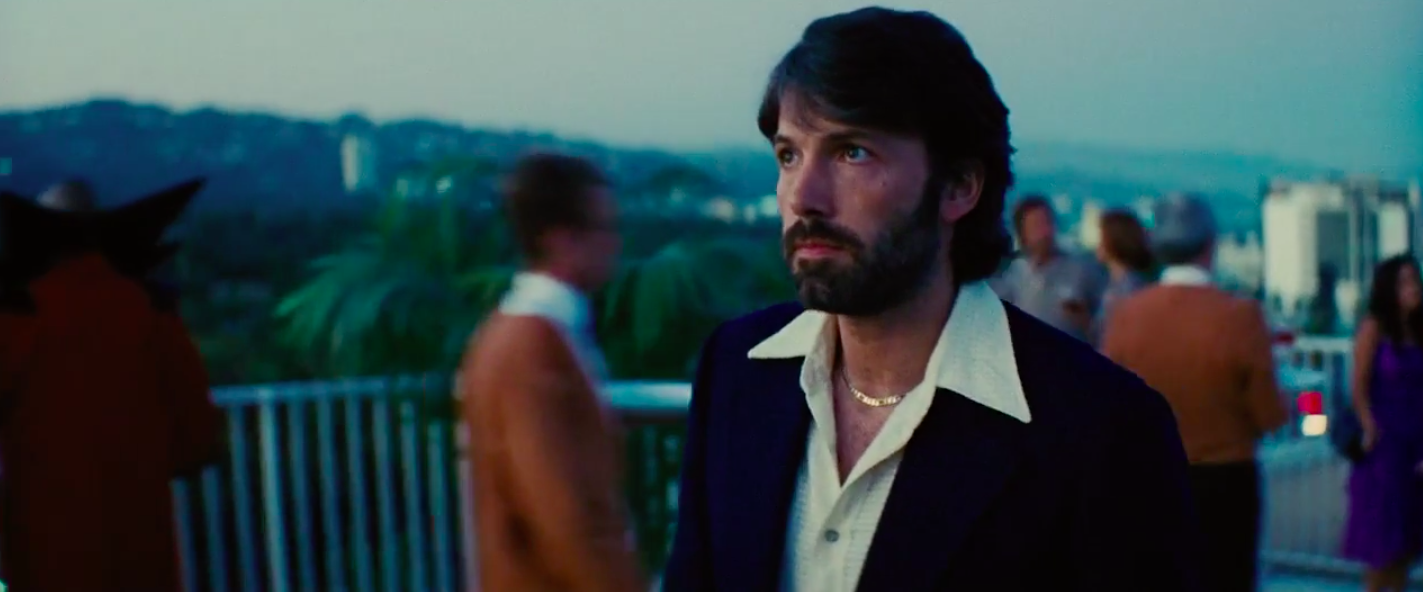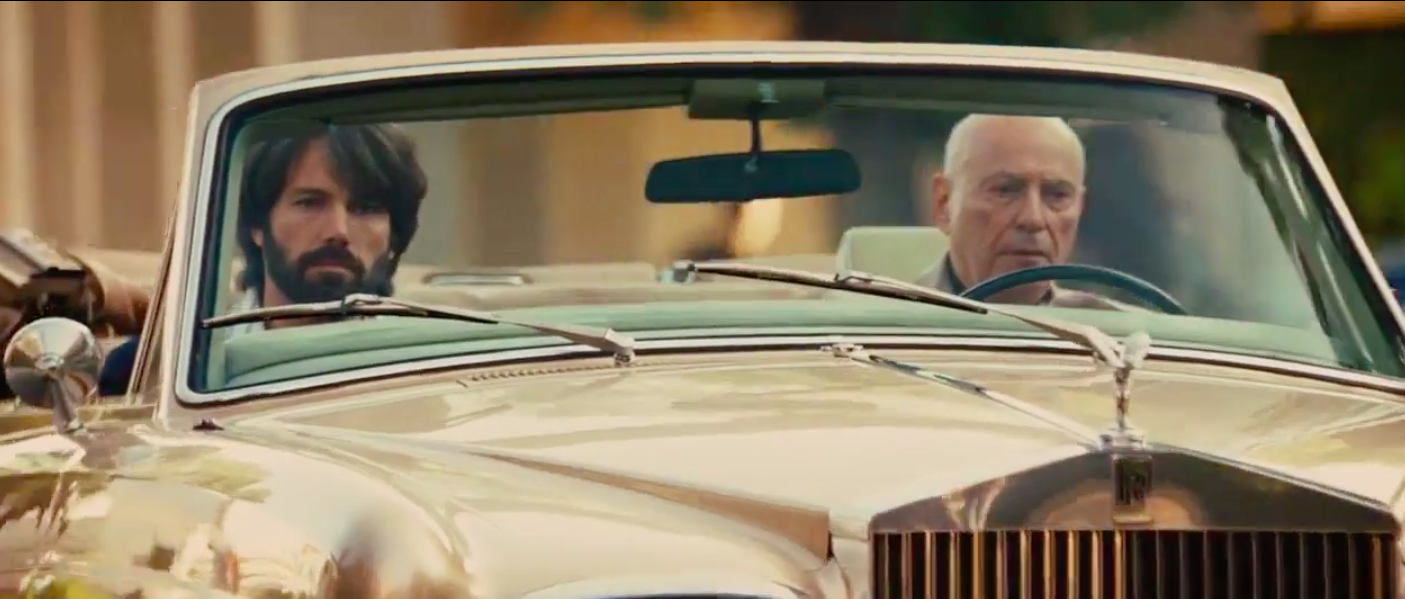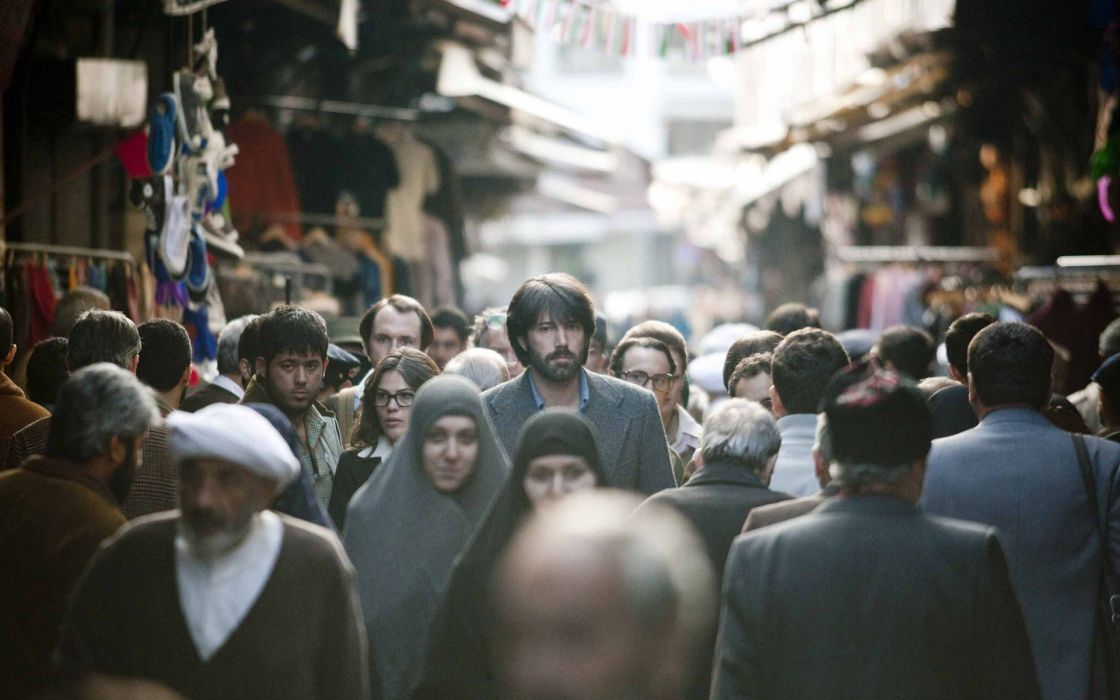Argo tells the story of how Tony Mendez (Ben Affleck) went undercover as a Hollywood producer in the CIA operation to rescue six Americans in Tehran during the U.S. hostage crisis in Iran in 1979.
We can discuss how Argo distances the audience from Iran, its history, its culture and its people in detail, but here I want to point out how it aims to create a bond between the viewer and Hollywood by representing it as a savior which is very much colorful, even though fake in nature.
As the viewers, notice how we are invited to take side with Hollywood against Iranians. In order to support this aim, even the most negative aspects of the industry are mocked by themselves and represented as if Hollywood will be the one to save those hostages because of how it functions with all the positive and negative features it has. There is a distinctive contrast between Hollywood and the other institutions in the movie; making it the single most fun, still useful, yet modest one.
If you think of the first few scenes where we were introduced to the setting, the initial scene resembles a zombie invasion, and is followed by the CIA meeting with an extremely manly and slang language. After these scenes, comes Hollywood with bright colours, a lively music at the background, people joking around in a very non-serious environment in contrast to the previous scenes. It comes somewhat as a relief to us, pointing that there exists a non-depressing way to overcome all these unpleasant issues.

The idea of Hollywood as a “savior” is unusual because the entertainment industry usually is not associated with serious business, especially with a hostage rescue plan that is actually a matter of life and death. Opposing to all the other rescue plans discussed in the meeting, Operation Argo is perceived as the least reliable one, yet it is the one to succeed.
Signalled by the crushed famous sign, we figure that Hollywood was going through a problematic period in 1980s. It is foreshadowed that it was not functioning properly as a film industry, but is present for the greater good of America. Taking a step back from the plot, the movie itself, aside from entertaining purposes, brings some kind of an awareness on the political history of the US and Iran no matter how biased it is. In both frames, Hollywood is somehow proven to be more than just an amusing industry.
In contrast to its holy duty as the saviour, Hollywood is noticeably mocked for being fake or phoney:
Tony Mendez: “I want you to help me make a fake movie.”
John Chambers: “You are in the right place.”
…
John Chambers: “So you wanna come to Hollywood and act like a big shot without actually doing anything. You’ll fit right in.”
…
John Chambers: “You can teach a Rhesus monkey to be a director in a day.”
…
Lester Siegel: “You want to lie to Hollywood, a town where everybody lies for a living”

Deceptiveness and lies are seen to be so common in Hollywood, the gentlemen have almost no trouble in constructing the fake movie. Lester Siegel lies about the script worthing nothing in order to get its rights from Max Klein. They use the power of press to “sell the lie” and the process runs smoothly. There seems to be a strange harmony and order in the rotten nature of the industry.
The way Affleck portrays Hollywood in Argo broadens our perception of the film business while aims to drive dislike and prejudice against the Iranians. Hollywood stands with the people, for the people, and is embraced with all its features whereas Iranians are not welcomed in any possible aspect. Creating this contrast contributes to the aim of the film; which apparently succeeds as it won three Academy Awards in 2013.
